This is a book about freedom—the freedom that once existed, the little freedom we have left that we can still take advantage of, and a strong hope for a greater freedom in the future.
Within these pages I am opening some old yet crucially relevant arguments and placing them squarely on the table for discussion, debate and perhaps resolution. I believe, as do many others, that the entrepreneur is the heart and soul of a free economy—and today that freedom is being seriously eroded, blocked and in some cases outright prevented.
– Nikolaus Kimla
1. Bureaucracy & Taxes
Let’s start off with a fictional but all-too-realistic picture of what it is like to run a small-medium business, and the severe burden taxes and bureaucracy place on its very survival and existence.
2. Understanding Social Welfare
It seems that it isn’t enough that small-medium businesses pay more than their fair share of taxes and are inundated with bureaucracy. Now the burdens of health care and social responsibility are falling on them as well. What once were voluntary beneficial activities are now being made “mandatory.”
3. Inequality in Funding
The oft-cited principle of “equality” does not seem to apply to small and medium-sized businesses. Huge amounts of tax money have been made available to big corporations—in particular under the banner of “fighting the crisis”—while smaller businesses have been left empty-handed. Yet they are responsible for a lion’s share of the value and jobs that are generated.
4. Competition With Big Business
Small and medium-sized business nearly always have a different culture than large corporations. Within a small-medium business, the individual human being is much more the focus of the relationship. This is compared to the highly professionalized, anonymous structures found at big corporations.
5. In the Beginning Was the Family
For small-medium businesses, no discussion of staffing issues would be complete without a mention of the family unit. Families were the original source of human resources for farms and, only a short time later, for small businesses.
6. Mega and Micro Solutions
Unfortunately, “businesses create problems and government solves them” is a prevailing sentiment regarding business and government. Companies and the economy as a whole are stigmatized as “perpetrators”; others like to see themselves in the victim role, a victim that only the State with a capital “S” can help.
7. Technology Means Knowledge–and Power
There are many others that have not recognized the true power that knowledge managementbrings companies—especially to small-medium businesses operating against much larger competitors.
8. Software: The Great Equalizer
Like it or not, the IT revolution is here, and there is no way around it. What we are experiencing and using today—from the global knowledge encyclopedia to local administrative tools—is just the beginning. IT and the e-applications connected to it are calling into question a multitude of customary practices and opening up completely new perspectives.
Download Evolution in Progress: How the Entrepreneur is Changing the World now.


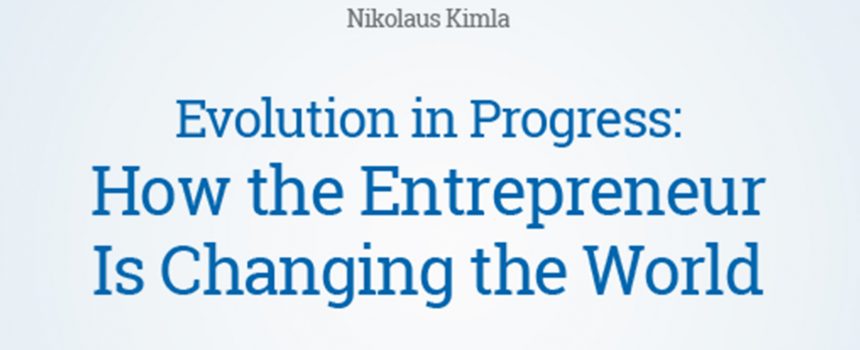
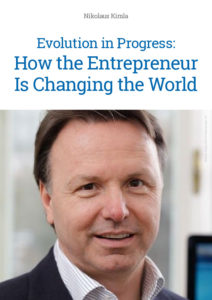
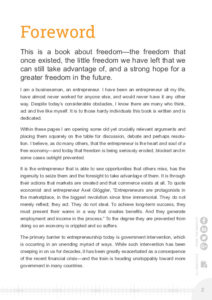
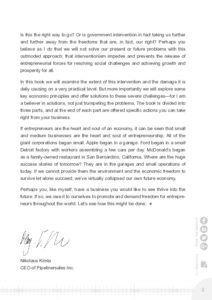
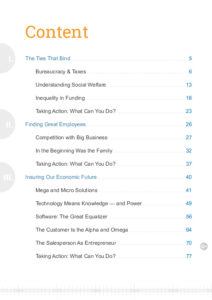



























Comments